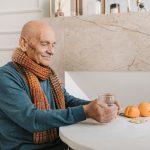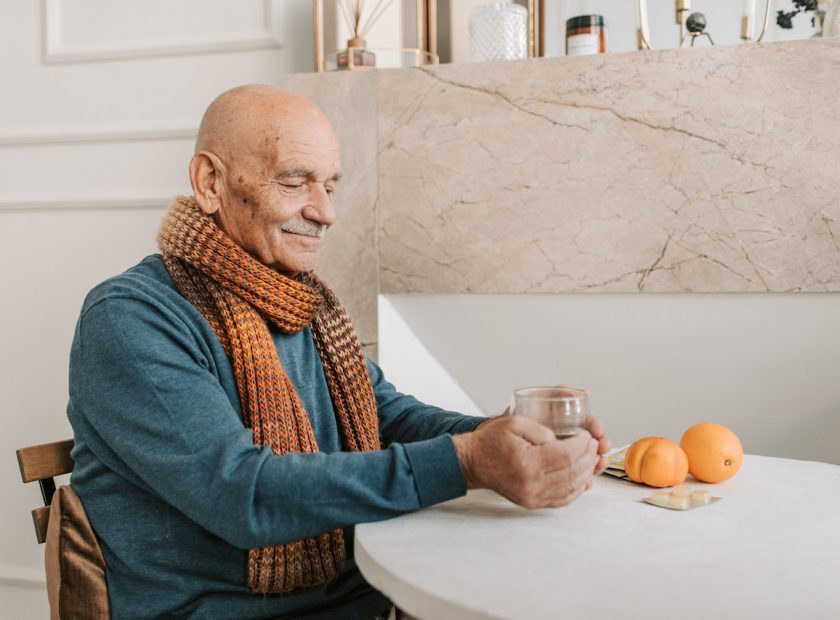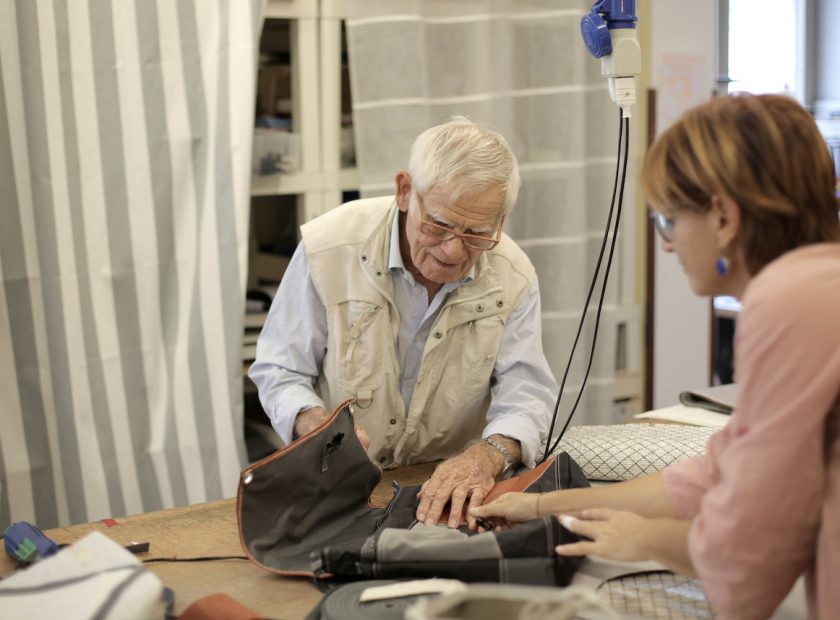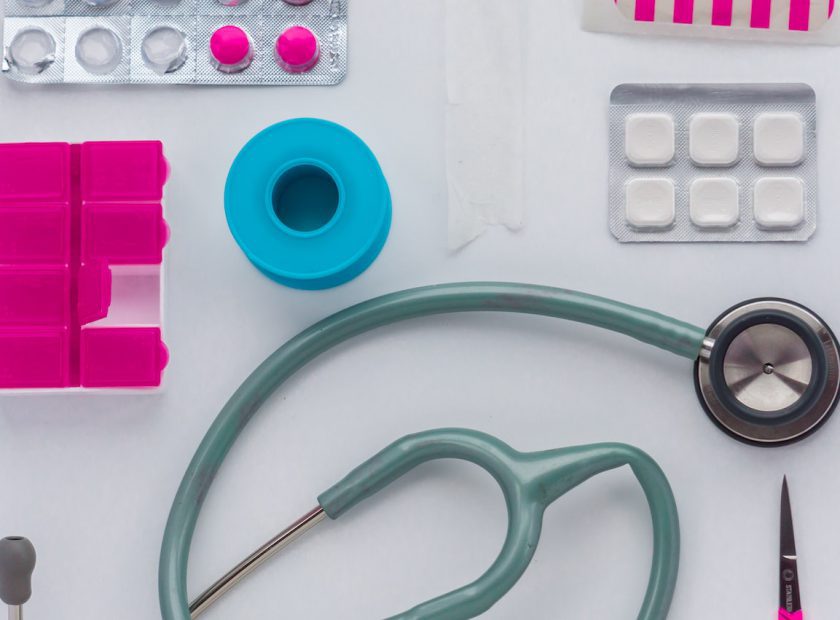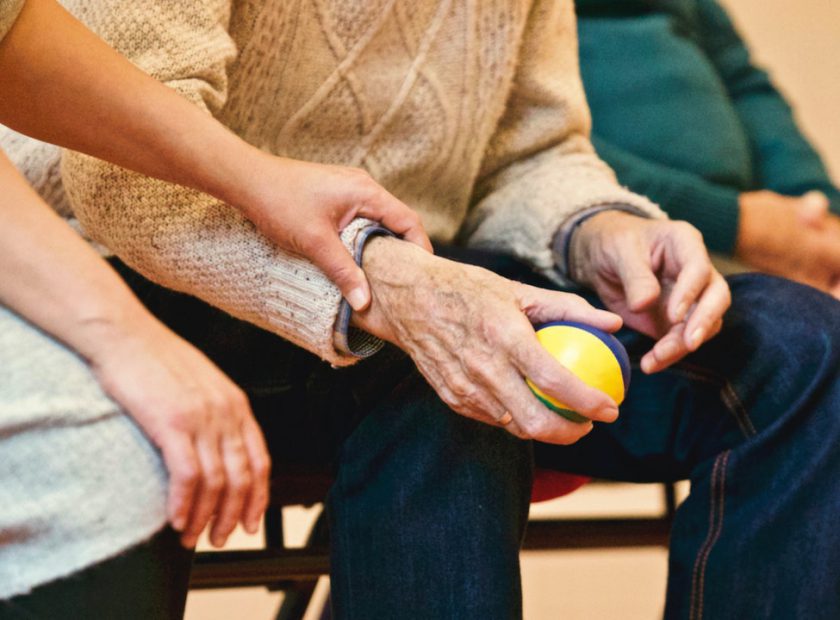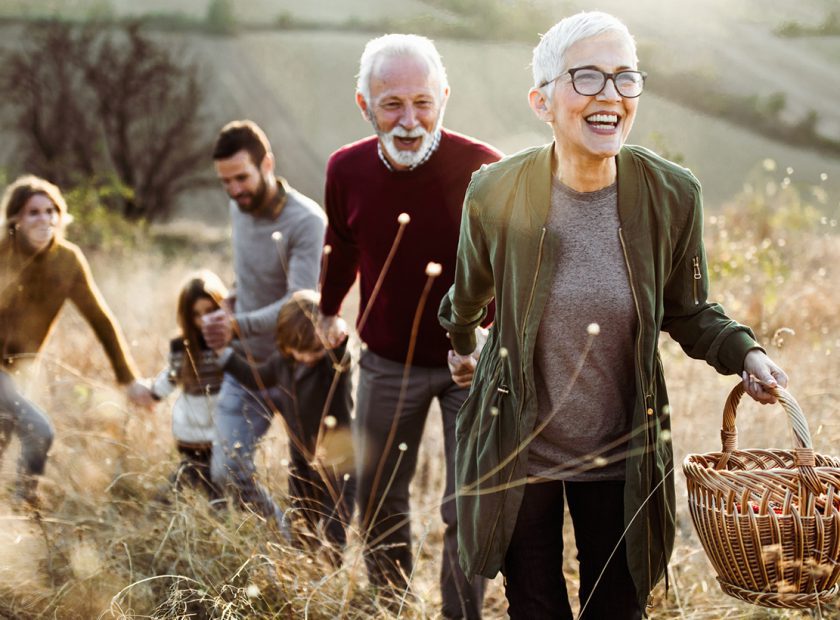How to Navigate the Anti-Ageing Maze: The Ultimate Guide to Supplements and Treatments
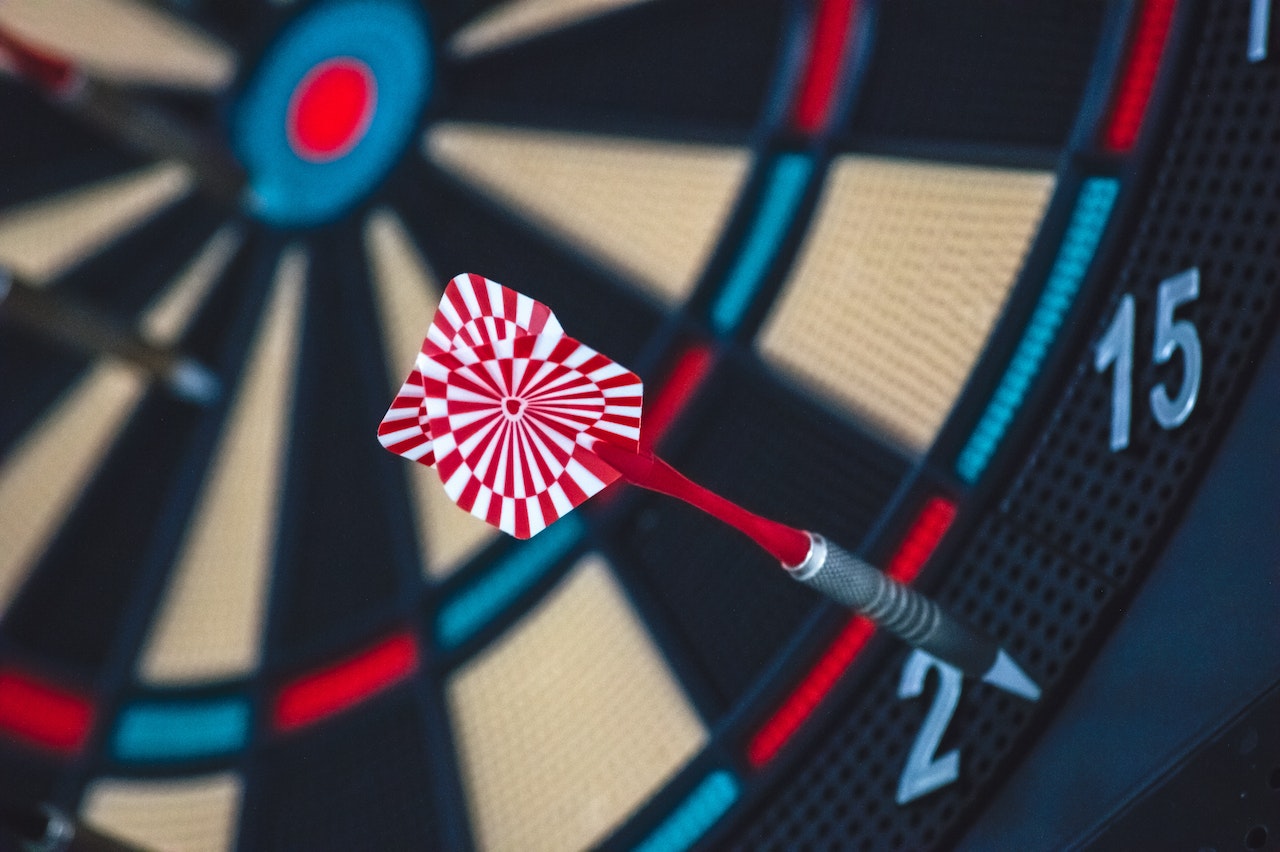
Do you want to look and feel younger without resorting to drastic treatments? Are you looking for the best natural anti-ageing strategies that will help you slow down the ageing process? If so, this is the blog post for you! In this ultimate guide to supplements and treatments for anti-ageing, we’ll uncover what anti-ageing is, explore the different types of supplements and treatments available, discuss natural approaches such as diet and exercise, and finally put it all together into an actionable plan. By following this guide, you can learn how to navigate the anti-ageing maze with confidence. So let’s get started!
What is Anti-Ageing.
Anti-ageing is a concept that has been around for centuries, and refers to the practice of trying to slow down, or even reverse, the process of aging. It includes a variety of lifestyle changes, treatments, supplements and medical interventions that are aimed at preserving youthfulness and delaying age-related decline in physical health and cognitive functions.
At its core, anti-aging is about living better for longer by making healthier choices based on scientific evidence about how aging works. While no one can totally stop the aging process from occurring (it’s inevitable!), we can take steps to make sure that our bodies age as slowly and gracefully as possible.The Impact of Aging on the Body.
Aging has an impact on nearly every part of our body: our skin loses elasticity; bones become thinner; muscles weaken; organs deteriorate; blood vessels narrow; hearing and vision declines; joints become stiffer; metabolism slows down; nerve cells die off faster than they regenerate leading to memory problems; hormones fluctuate wildly resulting in mood swings…the list goes on!
The good news is that there are ways to counteract these effects through diet and exercise, but even more importantly by supplying your body with essential nutrients it needs to stay healthy such as antioxidants like vitamins A, C & E or omega 3 fatty acids found in fish oil supplements. There are also other “anti-aging” options available such as hormone therapy or Botox injections which may help reduce wrinkles caused by sun damage or decrease sagging skin caused by gravity over time – though these approaches should be discussed with your doctor first before taking any action!
Supplements for Anti-Ageing.
The Role of Supplements in Anti-Ageing
Different Types of Supplements for Anti-Ageing
When it comes to anti-ageing, there is a plethora of supplements on the market that claim to help with age-related issues such as wrinkles, joint pain and fatigue. While some of these supplements may be beneficial, others may not have any effect or even be harmful. It is important to do your research and understand the different types of supplements available before making any decisions about supplement use.
Common types of anti-ageing supplements include:
• Vitamins: Vitamins are essential nutrients that are necessary for proper functioning and health maintenance. Vitamin C is often touted as an anti-ageing supplement due to its ability to boost collagen production, which can reduce wrinkles and give skin a more youthful appearance. Other vitamins like B complex vitamins can help support energy levels while folic acid can prevent cell damage caused by free radicals.
• Minerals: Minerals play an important role in overall health maintenance and can also help slow down the aging process by providing antioxidants, protecting cells from oxidative damage, strengthening bones and supporting healthy hair growth. Common minerals used in anti-aging supplementation include calcium, magnesium, zinc and selenium.
• Herbs & Botanicals: Many herbs have long been used for their medicinal properties in traditional medicines such as Ayurveda or Chinese medicine. Popular herbs used for anti-aging purposes include ginkgo biloba (for cognitive function), ashwagandha (for stress relief) and turmeric (for inflammation). Some botanicals like green tea extract contain powerful antioxidants that protect against cellular damage caused by free radicals.
The Effects of Supplements on the Aging Process
The impact that dietary supplements have on aging depends largely on the type and quality of ingredients used in them as well as how they are taken (ie orally vs topically). Generally speaking however, dietary supplements work best when combined with other lifestyle modifications such as regular exercise, adequate sleep habits and a healthy diet full of fresh fruits/vegetables/whole grains/lean proteins etc.. In addition to this combination approach being most effective at slowing down signs associated with aging like wrinkles , sagging skin etc., it can also reduce risk factors related to chronic diseases like heart disease , diabetes , cancer etc..
How To Choose The Right Supplements For Your Health
Choosing the right dietary supplement is not always easy given all the options out there but luckily there are some tips you can follow when selecting one:
• Look for products made from natural ingredients – Natural ingredients tend to be better tolerated than synthetic ones since they don’t come with potential side effects or drug interactions . Also look out for organic certification if possible – this means no pesticides were used during growing processes .
• Read labels carefully – Make sure you read labels carefully so you know exactly what active ingredients are included . Also pay attention to expiration dates because expired products may no longer be effective .
• Know your doses – Different forms of certain vitamins require different dosages so make sure you know what form your product contains before taking it . Additionally , find out if certain foods interfere with absorption rates – this information should also appear on product labels .
• Consider your individual health needs – Different people have different health needs so make sure to consider yours before selecting a supplement . For example , if you suffer from a chronic condition like diabetes or heart disease then certain supplements may not be suitable for you .
• Consult with a doctor – Before starting any new dietary supplement speak with your healthcare provider first for advice and recommendations specific to your health situation.
The Role of Supplements in Anti-Ageing.
Non-Invasive Treatments for Anti-Ageing.
Non-invasive treatments are the most common type of anti-ageing treatment and include a variety of options ranging from topical creams and lotions to oral supplements. Topical treatments can be used to reduce wrinkles, improve skin tone, and brighten the complexion. Additionally, these products can help to stimulate collagen production and protect against sun damage as well as reduce inflammation in the skin. Oral supplements may include vitamins and minerals that work together to promote overall health while providing specific benefits related to slowing down the ageing process such as promoting healthy hair growth or reducing age spots.
Invasive Treatments for Anti-Ageing.
Invasive treatments involve procedures that require some kind of intervention such as injections or surgery in order to achieve desired results. Botox injections are one example of an invasive treatment commonly used for anti-ageing purposes; they can be used on various areas of the face including brows, forehead, cheeks, jawline, etc., to smooth out wrinkles and create a more youthful appearance. Dermal fillers are another popular option which involves injecting a substance beneath the skin in order to add volume where necessary (e.g., around lips). Other types of invasive treatments range from laser resurfacing (to reduce redness/scarring) to facelifts (for more dramatic changes).Alternative Treatments for Anti-Ageing.
Alternative treatments refer to those which do not fall into either non-invasive or invasive categories but still offer potential benefits when it comes to anti-ageing efforts; this includes things like acupuncture, aromatherapy, massage therapy, bioidentical hormone replacement therapy (BHRT), homeopathy/naturopathy etc., all with unique properties that could potentially have an impact on slowing down the ageing process or improving your quality of life during old age– depending on individual needs/goals/preferences etc..
Treatments for Anti-Ageing.
Natural Approaches to Anti-Ageing
Diet and Exercise for Anti-Ageing
One of the most effective natural approaches to anti-ageing is through diet and exercise. Eating a balanced, nutrient-rich diet can help slow down the signs of ageing by providing essential vitamins and minerals that are required for healthy skin, hair, nails, bones, teeth, eyesight and more. Incorporating regular physical activity helps keep your body in good condition by strengthening your muscles and bones while also improving flexibility and balance. Not only will this improve your overall health but it can also help you look younger as well! Mind-Body Practices for Anti-Ageing
Mind-body practices such as yoga, meditation or mindfulness activities can help reduce stress levels which in turn can slow down the ageing process both physically and mentally. Regular practice of mind-body exercises not only improves relaxation but also reduces cortisol (the stress hormone) levels which can cause wrinkles over time due to its effect on cell growth. Additionally, these practices promote better sleep quality which is important for maintaining proper hormone balance in order to prevent premature ageing from occurring.
The Power of Sleep for Anti-Ageing
Getting enough restful sleep every night is an essential part of any anti-ageing routine due to its ability to regenerate cells within our bodies so that they remain strong throughout life’s changes. Proper sleep patterns are key when it comes to anti-ageing because without adequate rest the body cannot properly repair itself or maintain optimal functioning levels; this makes us more vulnerable to age related illnesses such as diabetes or heart disease which increase with age if left unchecked . Inadequate sleep has also been linked with increased inflammation which leads to accelerated ageing processes including wrinkles, dark circles under eyes and sagging skin – all signs we want to avoid!
The Different Types of Anti-Ageing Treatments.
Non-invasive treatments for anti-ageing include a wide range of options such as topical creams, serums, and exfoliants; injectables like Botox® and dermal fillers; radio frequency (RF) treatments; chemical peels; laser resurfacing; and light therapies. These treatments can be used to improve the overall appearance of skin, reduce wrinkles, and improve the tone and texture of skin.Invasive Treatments for Anti-Ageing.
Invasive treatments for anti-ageing are typically reserved for more severe signs of aging or specific procedures that require medical intervention. These include plastic surgery, microdermabrasion, fat grafts, stem cell therapy, face lifts, brow lifts, tummy tucks, liposuction and other surgical cosmetic procedures. While these treatments may offer quick results with minimal downtime compared to non-invasive treatments they are generally more expensive and have a higher risk of side effects or complications due to their invasive nature.
Alternative Treatments for Anti-Ageing.
Alternative treatments are those that focus on holistic approaches to address the root cause of aging rather than just treating its symptoms on a surface level such as diet changes or lifestyle modifications in order to promote overall health from within as well as outside appearances. Some alternative methods used in anti ageing treatment include acupuncture/acupressure sessions; taking herbal supplements such as ginseng or ashwagandha; using essential oils like lavender oil; consuming collagen supplements; using natural moisturizers containing antioxidants such as vitamin C or CoQ10 etc.; yoga/meditation practices aimed at reducing stress levels; regular detoxification programs etc..
Natural Approaches to Anti-Ageing .
Natural approaches towards anti ageing involve making lifestyle changes that focus on holistic wellness which includes physical activity , proper nutrition , adequate sleep , managing stress levels through various mind body techniques like meditation , yoga , tai chi etc., avoiding smoking / drinking alcohol / indulging in recreational drugs ; maintaining healthy relationships ; protecting oneself from sun damage by applying sunscreen regularly etc.. All these together can help prevent premature ageing by providing our bodies with what it needs naturally so it can work optimally over time instead of trying to fix things after they have already gone wrong!
Natural Approaches to Anti-Ageing.
Practicing Self-Care for Anti-Ageing
Establishing Healthy Habits
For those who are looking to age gracefully, practicing self-care is essential. This means making sure that you’re taking steps each day to ensure that your body and mind remain healthy and in balance. Establishing healthy habits such as regular exercise, a balanced diet, and adequate sleep can help improve overall health, reduce stress levels, and even slow down the aging process. Additionally, taking time for yourself each day to practice activities like yoga or meditation can help promote relaxation and boost moods which can have an anti-ageing effect on the body.
Stress Management
In addition to establishing healthy habits, managing stress levels is key when it comes to preserving youthfulness. High levels of stress hormones such as cortisol can accelerate the aging process by breaking down collagen in the skin, leading to wrinkles and dullness of complexion. Therefore it is important to take measures to keep your stress level low by doing things like engaging in activities that make you feel relaxed or happy (e.g., listening to music), utilizing coping strategies (e.g., deep breathing exercises), avoiding situations that trigger high amounts of anxiety (e.g., large crowds) etc.. Doing so will not only help you look younger but also live longer!
Skincare Routine
Lastly, maintaining a proper skincare routine is another great way of achieving youthful looking skin without having to resort to expensive treatments or surgery. A good skincare routine involves cleansing the face twice daily with a gentle cleanser followed by moisturizing with an anti-aging cream or serum containing active ingredients such Vitamin C or Retinol (a derivative of Vitamin A). Applying sunscreen before going out into the sun is also essential as UV rays from sunlight can cause premature ageing of skin cells leading them lose their ability elasticity over time resulting in wrinkles and unsightly spots on the face & body .
The Benefits of Natural Approaches to Anti-Ageing.
Nutrition and Anti-Ageing.
The food we eat can have a significant impact on our health and well-being. Eating a balanced, nutrient-rich diet is essential for proper functioning of all the body’s systems, including those related to aging. A diet that includes plenty of fresh fruits, vegetables, whole grains, lean proteins, and healthy fats will help to keep your skin looking youthful and reduce wrinkles. Additionally, dietary supplements such as omega-3 fatty acids, antioxidants like vitamins C and E, and other nutrients may provide additional anti-aging benefits.
Exercise for Anti-Ageing.
Regular physical activity is one of the most important things you can do to protect yourself against the effects of aging. Exercise helps to improve circulation which increases oxygen delivery throughout the body while also helping to flush out toxins from cells that can damage them over time leading to accelerated aging. Regular exercise can also help maintain muscle mass which declines with age leading to decreased functional abilities such as balance control or walking speed if left unchecked. Additionally, exercise releases endorphins which make us feel happier overall; this is beneficial for mental health which plays an important role in slowing down the ageing process by reducing stress levels in our body’s cells. Stress Management for Anti-Ageing:
Stress management is an essential component of anti-ageing since it can lead to increased inflammation in our bodies (which accelerates cellular ageing). To reduce stress levels it is important to practice relaxation techniques such as yoga or meditation regularly; additionally making sure you get enough sleep at night will go a long way towards reducing stress hormones in your system during the day! Other lifestyle modifications like avoiding smoking or excessive alcohol consumption may also be beneficial when trying to manage stress levels effectively over time – both of these habits are known contributors towards premature ageing so they should be avoided where possible!
Section Conclusion.
Anti-Ageing and Lifestyle Factors.
The Impact of Stress on the Aging Process.
Stress is a major factor in aging, as it can contribute to accelerated cell death, inflammation, and oxidative damage. Prolonged stress can also lead to hormonal imbalances which further age the body. It is important to take steps to reduce stress levels by engaging in activities such as yoga, meditation, and mindfulness practices that help promote relaxation and mental wellbeing.Sleep Hygiene for Optimal Anti-Ageing Results.
Making sure you get enough quality sleep is essential for anti-ageing results, since during sleep your body repairs itself from damage caused by environmental factors throughout the day such as sun exposure or pollutants. To ensure optimal restorative sleep, practice good “sleep hygiene” habits like avoiding screens two hours before bedtime; going to bed at the same time each night; keeping your bedroom cool and dark; avoiding caffeine late in the day; exercising regularly; and avoiding large meals within two hours of bedtime.
Diet Choices That Can Help Slow Down the Aging Process .
Eating a healthy diet full of vitamins, minerals, antioxidants and other nutrients has many health benefits including slowing down the aging process by improving skin elasticity and reducing wrinkles or sagging skin due to collagen loss over time due to aging processes like glycation (a process where sugar molecules attach themselves to proteins). Incorporate foods like vegetables (particularly leafy greens), fruits rich in vitamin C (such as oranges), nuts high in omega-3 fatty acids (such as walnuts), healthy fats like olive oil or avocado oil, lean sources of protein such as fish or beans/legumes etc., into your daily diet for maximum anti-ageing benefits. The Benefits of Regular Exercise for Anti-Ageing .
Regular exercise is beneficial for anti-ageing because it helps to reduce stress levels, improve circulation, increase energy levels and can even help to slow down the aging process by stimulating collagen production in the skin and helping to maintain muscle mass. Aim for at least 30 minutes of moderate intensity exercise most days of the week – this could include walking, jogging, cycling or swimming; strength training with weights twice a week; and stretching at least three times a week (yoga or Pilates is ideal).
Putting it All Together: The Ultimate Guide to Anti-Ageing.
Integrating Supplements and Treatments for Anti-Ageing.
When it comes to combining supplements and treatments for anti-ageing, the goal is to use them in a way that works best for you. There are many different combinations of supplements, treatments, and natural approaches that can be used to achieve optimal health and wellness. In order to get the most out of your anti-ageing efforts, it’s important to create a plan that integrates these various elements in an effective manner.Optimizing Your Anti-Ageing Plan.
In order to optimize your anti-ageing plan, it’s important to consider both short term and long term goals when selecting which treatments or supplements will be part of your regimen. For example, if you are looking for immediate results from an anti-ageing treatment or supplement then you may want to opt for more invasive solutions such as Botox injections or laser resurfacing rather than opting for more natural approaches such as diet and exercise changes over time. Additionally, when choosing supplements look at their ingredients carefully so that they provide the nutrients necessary for achieving your desired goals without causing any adverse effects on your health due to excessive dosages or interactions with other medications/supplements you may be taking.Working with Professionals When Navigating the Anti-Ageing Maze
No matter what type of approach you decide upon—whether it’s integrating different types of supplements into your daily routine or undergoing noninvasive procedures like facials—it’s always helpful (and highly recommended) to consult professionals throughout this process in order ensure safety while still achieving optimal results from all anti-ageing efforts made. Working with professionals can also help ensure that any potential side effects associated with certain treatments or supplements are minimized while still providing maximum benefits tailored specifically towards helping reach individual goals related to age management..
Conclusion
We have come to the end of our journey exploring the anti-ageing maze. We have looked at what anti-ageing is, how it affects us and how we can use supplements and treatments to help us manage it. We also discussed the importance of natural approaches such as diet, exercise, mind-body practices and sleep in counteracting the effects of aging.
The key takeaway from this guide is that there are a variety of ways to approach anti-aging that work best when used together. By combining a healthy lifestyle with targeted supplements and treatments, you can slow down the aging process and maintain your youthful glow for years to come. So take control of your health today by following these tips on navigating the anti-ageing maze!


